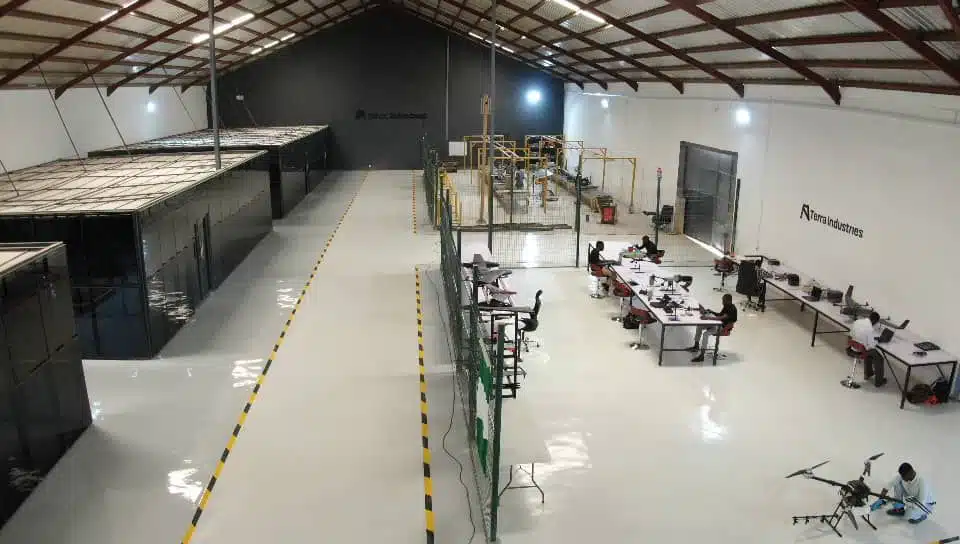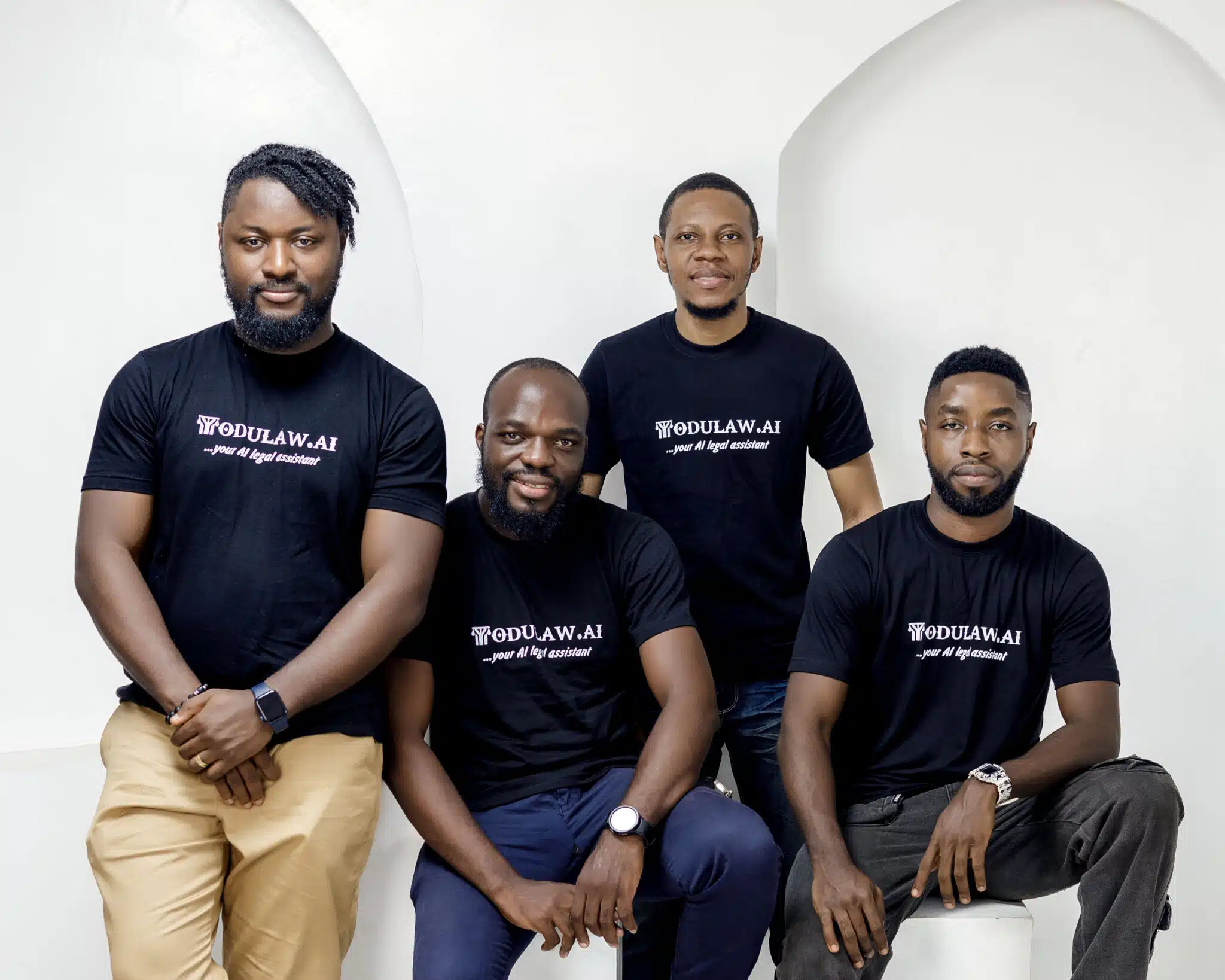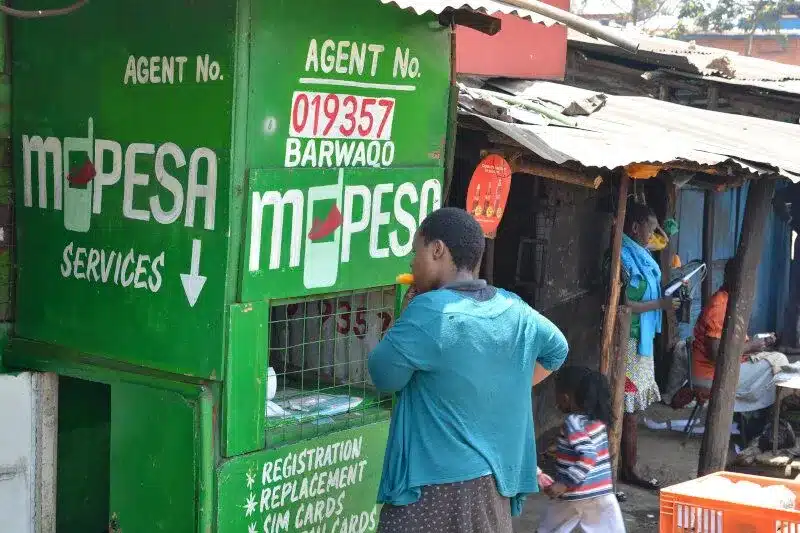Editor’s Note (October 13, 2022): The original article below shows that the Asset Recovery Agency of Kenya launched investigations against Multigate Limited and RemX Capital limited on suspicions of money laundering.
The ARA has since completed the investigations and dropped the money laundering charges against both companies. Without any further evidence, this also renders media reports about possible political influence null and void.
Media reports also suggested that Interpol also launched investigations on both companies, but we have it on good authority that there was no Interpol investigation on the two companies.
Original story continues below.
Inventing Anna and Ozark, two movies that have attracted global attention for their engaging crime-focused narratives, have lured Netflix subscribers into spending what amounts to 208 centuries (20,800 years) during their runtime. A major similarity between both shows is the theme of money laundering. A phenomenon governments are grappling with globally. Kenya has featured some interesting news in recent weeks. Does it befit a movie? Well, why not read on.
On July 6, 2022, Kenyan publication, Star.co announced that a Kenyan high court had ordered the freezing of 56 accounts mainly belonging to Nigerian fintech juggernaut, Flutterwave. The decision to freeze these accounts, which had a sum of Ksh7 billion ($59 million), was made after the Asset Recovery Agency of Kenya, (ARA) told the court that the accounts were suspected money laundering conduits.
Huge reactions followed this news, and while things didn’t look good for Flutterwave given its recent run-ins with controversies, the skies were not clear for other Nigerian fintech companies.
On July 14th, 2022, a Kenyan high court again ordered that the accounts of two more Nigerian fintech startups, Korapay and Kandon technologies, be frozen with the sum of ksh 45 million ($380,000).
The ARA alleged that both companies siphoned up to $6 billion with the suspicious movement of funds. It also stated that both companies were linked to Flutterwave and the related companies it accused of money laundering.

Victoria Fakiya – Senior Writer
Techpoint Digest
Stop struggling to find your tech career path
Discover in-demand tech skills and build a standout portfolio in this FREE 5-day email course
Both Flutterwave and Korapay have come out to deny these claims in their respective official statements. While Flutterwave stated that the allegations were false, it did not provide further information on the actual realities of the situation.
Korapay, on the other hand, explained that the frozen funds in question were part of the requirements to obtain a payments processing license in Kenya.
However, the issues run deep, and this is not the first time Nigerian companies have been flagged in Kenya. So far, the Kenyan government has frozen $*** billion in funds belonging to Nigerian firms.
First, let’s take a quick detour to understand the space.
Kenya’s battle with money laundering

Money laundering regulations are very strict globally, and the laws constantly need to be updated. According to the UN, about 2- 5% of the world’s GDP, 800 billion to $2 trillion, is generated from people trying to conceal the origin of illegally obtained funds using foreign banks or legitimate businesses as a front.
A company or its founder could be directly involved in money laundering activities, or customers of financial institutions could take advantage of a loophole to facilitate their criminal process.
As you can already guess, that’s why financial services companies are big on know-your-customer (KYC) requirements when opening an account. The potential for financial losses, organised crime, and terrorism, have made the financial sector one of the most heavily regulated in the world.
While financial services institutions have strict regulations, money laundering still drains an average of $1.6 trillion annually from the global economy.
Traditional finance companies have long struggled to keep up with the dynamism of fraudsters that keep finding creative ways to launder money, but research shows that fintechs have higher risks.
The rise of fintechs has reshaped the way we look at the financial services space globally. Per Sanction Scanner, the high growth and massive transaction volumes expose fintechs to several bad actors which might be difficult to control.
How? Criminals are constantly finding loopholes in an airtight system and when the company in question is a fintech, this can happen at high volumes. Against this backdrop, regulators either readjust or overhaul any existing frameworks.
Kenya’s Proceeds of Crime and Anti-Money Laundering Act (POCAMLA) 2009 contains comprehensive guidelines for guarding against money laundering processes and other significant financial crimes.
This led to the formation of the ARA which is tasked with identifying, tracing, freezing, seizing and confiscating crime proceeds in Kenya. An analogous body in Nigeria is the National Financial Intelligence Unit (NFIU).
Most times, issues in the regulatory space do not get to the ARA. The Central Bank of Kenya (CBK) does the heavy work of keeping financial services companies in line with these regulations. On occasions when companies work on the fringes of these regulations and escape the direct lenses of the CBK, it’s inevitable that the ARA would swoop in.
In most jurisdictions, when a bank flags a suspicious transaction, it flags the account and invites the customer to clarify what the transaction was meant for. In more serious cases In Nigeria, the bank could report to the NFIU, or if it’s high profile enough, the body could become actively involved in the process.
Interestingly, the POCAMLA allows the ARA to freeze the account of any company where a suspicious transaction is flagged. The agency can freeze it for 45 days, and if it’s not convinced, it can ask for an extra 90 days to finalise its investigation.
It’s noteworthy that if the ARA freezes accounts it will still have to determine if there was any wrongdoing from the affected parties.
So far, the agency has made some high-profile issued court orders to freeze accounts of suspected companies. However, recent reports suggest that Kenya is becoming a hotbed for money laundering, and Nigerian fintech companies are seemingly facing the heat of its renewed stringent measures.
Why is Kenya seemingly attacking Nigeria?
In many quarters, Nigeria’s reputation as the origin of several Internet-based scams precedes it. The narrative is, however, not so straightforward as shown in this video below.
At first glance, it would seem that the ARA of Kenya seemingly has it out for Nigerian companies. A closer look at Flutterwave’s and Korapay’s statements, makes this seem like this is yet another case of regulations not catching up nicely with innovation.
However, deeper research shows there’s smoke emanating from the bunch of coals. Whether you interpret the series of information I’m about to provide as suspicious or par from the course will depend on where you stand in the innovation vs regulation debate.
Nigeria has featured heavily in Kenya’s recent crusade against money laundering. Before KiwiPay, Flutterwave, KoraPay, and Kando Technologies, Nigerian company Multigate Limited, and Avalon offshore logistics also faced investigations from the ARA.
However, the current investigation on money laundering is not solely targeted at Nigerian companies. In June 2022, a Kenyan court, on the ARA’s appeal, froze Sh2.3 billion ($19.48 million) in KiwiPay’s account, a Singapore-based fintech startup. The appeal was based on money laundering suspicions, similar to those levelled against Flutterwave and Korapay.
About four Kenyans were named as directors in these companies, and the KRA showed that this company could be involved in a larger and more complex money laundering scheme. South African company, OIT Africa was also among the companies with frozen accounts in Kenya.
The directors of RemX capital were also of Kenyan origin, and the entire series of allegations have featured Kenyans and Nigerians working in tandem.
There might be some plausible reasons

Flutterwave CEO, Gbenga Agboola, alluded to the imminent elections in Kenya as a possible reason for what seems to be a witchhunt of Nigerian companies.
Other sources close to these fintech companies cautiously agree, stating that a sure-fire way to get people united during an election is to unite against a common, albeit, imaginary enemy.
While the political undertones are not clear, reports that featured RemX Capital and Multigate Limited also claimed these companies were backed by a powerful Kenyan politician that remained unnamed for legal reasons. This has since been shown to be unfounded.
The counterargument against this notion is that the investigations have seemingly started since 2020, and the ARA alleges that these companies are linked.
However, if there’s reason to believe that opposition parties are bringing funds into the country, the recent moves from the ARA would make sense.
While there might be political undertones, we can take a progressive spin to this conversation.
Cross-border fintechs vs regulations

Since all companies have denied these allegations, and investigations are still ongoing, it would be imprudent to jump to conclusions. If you’ve been following the startup space, you’d observe that companies use technologies to exploit loopholes in regulations.
The now-defunct motorcycle hailing companies of Lagos found theirs with the government’s permitted bike capacity, solar companies are producing lower wattage mini-grids in high volumes to skirt around the regulatory limits, while digital banks acquire a state-level microfinance bank licence that allows them to operate nationwide with the aid of technology.
An investor with deep knowledge of Kenya’s fintech space states the Kenyan government has actually been supportive of fintechs, so the recent moves have been quite surprising.
If the country of origin is irrelevant and not all fintechs are facing the ire of the ARA, it would be helpful to note what these fintechs have in common. All the fintechs in question are all operating some form of cross-border payment service. Either with cards or remittance.
Interestingly, you’d find that the cross-border payments space in Africa has been historically difficult, and legacy companies like Western Union and Moneygram have to constantly deal with tough regulations, making sub-Saharan Africa the most expensive region for you to send money to other countries.
While most reports have focused on individuals sending money, what they haven’t shown is how much more difficult it is for companies running global operations from these companies to manage payments and move funds across borders.
Enter fintech companies looking to play in the cross-border payments space and make things significantly easier for Africans to send money to and from the continent. Flutterwave has established a presence in 33 African countries for B2B payments, Korapay, which recently expanded to the UK, Kandon Technologies, and Multigate Limited also help businesses manage funds across geographies, and different currencies.
So when you narrow things down, the ARA’s suspicion is seemingly targeted at companies playing in the B2B cross-border payments service. For such companies, huge amounts of funds would have to be moved.
“The mere fact that large amounts of money are moved by our businesses does not make it money laundering and demonstrates a lack of understanding of our business model,” says Multigate in a public statement to Nairametrics.
Considering Africa’s tough regulatory environment, it’s hardly surprising that they’ve chosen to move money through weird routes that have raised the suspicion of the ARA regarding money laundering.
Let’s take Flutterwave, for example, which settles transactions for a global ride-hailing company, Uber, in Nigeria. The company collects payments from customers in naira but would sometimes need to settle a merchant like Uber in naira.
In Nigeria, the CBN has constantly implemented stringent measures to limit access to foreign exchanges, and that has become a huge issue. Consequently, the company would have to make use of partners in countries with similarly developed and FX friendly policies. That’s were Kenya comes in.
We’ve seen this before

A critical point the ARA made was that all the companies were linked in a complex money laundering scheme. While I could continue playing devil’s advocate and put it down to fintechs collaborating, conversations I had yesterday and raised up further weirdness.
While the ARA linked Korapay to Flutterwave, I gathered from an off-the-books interview that both companies have not had a transaction in Kenya.
Yes, both companies had no official transactions, but business daily reports allege that Flutterwave made payments to Boxtrip capital, a company registered by Enyioma Olufemi Madubuike who’s the Chief Compliance and Legal Officer of Korapay. Efforts to reach him have proved abortive. Some funds were also transferred to other companies registered to individuals with ties other companies.
While I’m careful not to draw any conclusions from this, it shows that the ARA probably has good cause to be suspicious of such account activities. It’s also another wake-up call for fintechs to rethink their approach to compliance and regulations.
“If a licensed company in Nigeria sends a certain sum of money to a Kenyan account, the initial reactions shouldn’t be money laundering. The ARA should, at least call the company to ask them what the transaction is for,” a source argues.
According to our source, the ARA’s approach has created room for extortion of the respective companies, even though no clear case of money laundering has been stated beyond money entering an account.
In Korapay’s case, the company reported that the money the ARA froze was meant to acquire a payment licence to operate in Kenya. Apparently, the money has reportedly been sitting in the said account since 2021.
We were able to obtain documents from the CBK that showed all the amounts needed to obtain a payments license in Kenya, and when we added up everything, it amounted to $250,000, the same amount of money that was frozen in Korapay’s accounts.
As for the amounts Flutterwave transferred to the likes of Boxtrip travels limited, Bagtrip travels limited, and Rainbow technology solutions, we could make reference to Nigeria’s FX difficulties once more, a tell-tale sign that these companies must be part of a loophole to bypass the CBN’s tight ship.
This example of regulators freezing accounts was seen last year with Nigeria’s Securities and Exchange Commission and Chaka Technologies. It could be a sign for regulatory tightening, instead of the unpleasant narratives currently ongoing in several quarters.
Also, even if the companies are not engaged in anything on towards, we have to recognise that making cross-border transactions seamless for honest customers also could also mean seamless transactions for dishonest actors constantly looking to exploit financial loopholes.
The companies could also be in cahoots with these actors as we found with Ping express, a US cross-border payments startup whose founders were jailed for facilitating the proceeds of romance scams in Nigeria.
In 2020, Nigeria reported the 2nd highest number of cyberattacks, and it has reported massive losses to fraud. On a global stage, it’s a similar story, with $28 billion lost to card fraud alone.
The details of this story are far from over, and I’ve refrained from disclosing some key information I can’t yet confirm. Watch this space for constant updates. You can also catch up with us on Twitter by 7 pm on Friday, July 22, 2022, to discuss compliance as a fintech founder.











